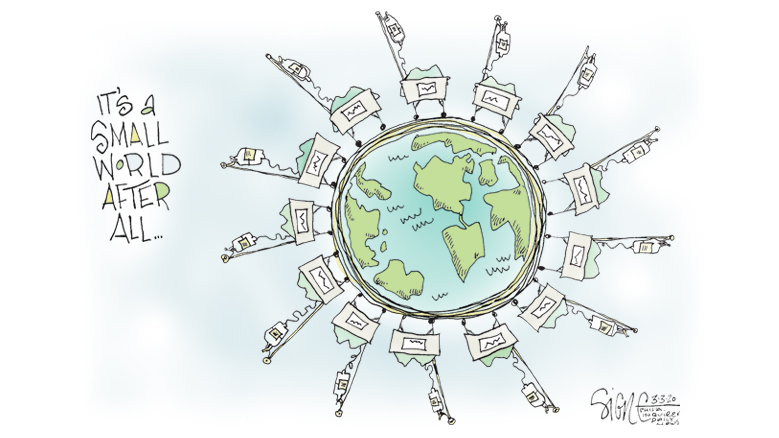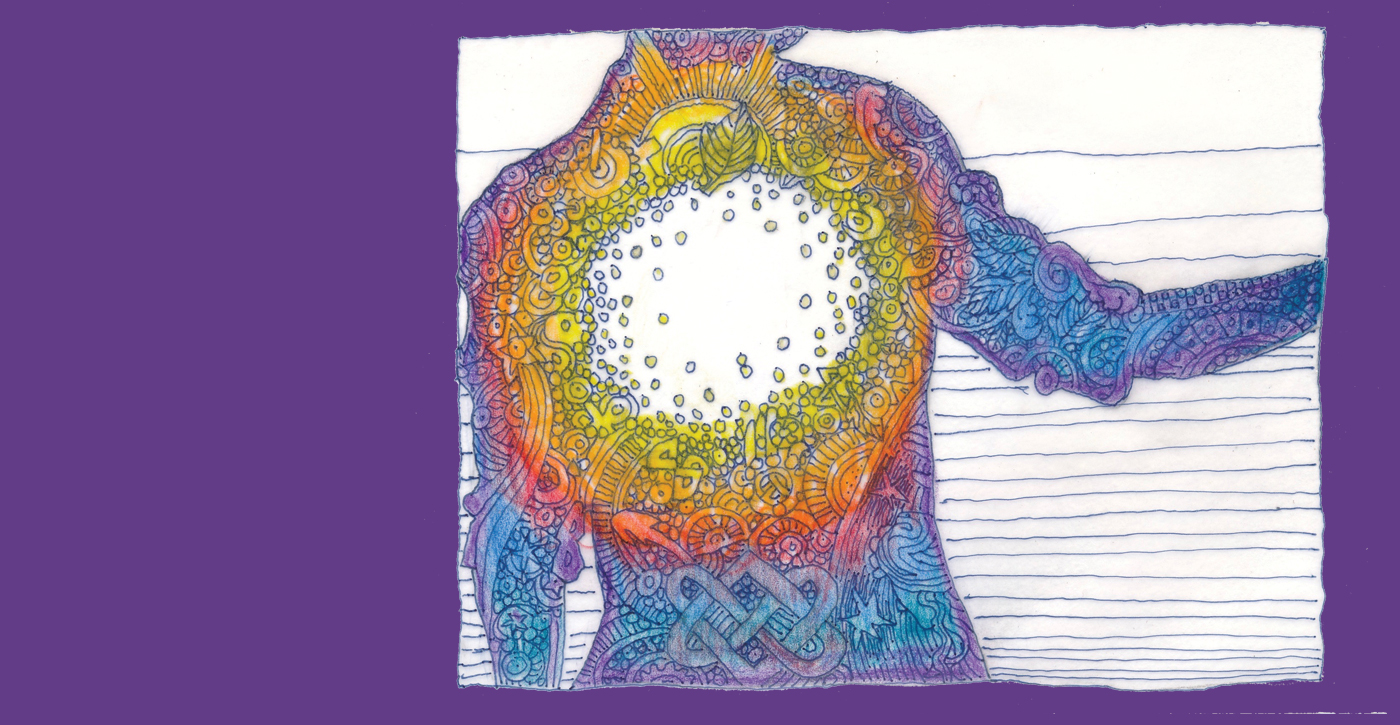During our regional women’s retreat in New Mexico, we gathered at Claire Leonard’s rural home to share our deep experiences as women and as Friends. Our facilitator, Rebecca Henderson, reminded us of the theme of this gathering: What were our early experiences that gave us strength? Our intimate and powerful sharing gathered us in a way I’ve seldom experienced. That night, we shared examples of our recent creative expressions. Additionally, I gained evidence of our feminine love of beauty and creativity. The final worship-sharing theme was on early experiences that have continued to strengthen and support us throughout our lives. All three themes, as well as our gathered worship times and opportunities to speak personally with participants, were enriching and transformative for me. Until this event, I felt that I differed, sometimes dramatically, in my life experiences and perceptions. At the end of the retreat, I knew that all the difficulties and setbacks I’ve experienced came from our common experience: that of attempting to birth the feminine perspective and values in a destructive world.
I cried when I recognized that my felt task is that undertaken by all sensitive, nurturing, and intuitive individuals, men as well as women. My heart found its home ground in this group of Quaker women. Out of our sharing came our theme for next Spring’s women’s retreat: "Quaker women in the world." To my surprise and delight, when I checked out the Friends Journal website this week, I found a call for submissions on this theme. Truly, as is stated in Pacific Yearly Meeting’s Faith and Practice, "Bidden or unbidden, God is at work among us." The question that arises for me is: how can we, as women, birth our feminine perspectives and give our gifts in a world that systematically devalues and abuses us?
Like it or not, our world is dominated by masculine gifts of power and structure, gravely distorted. The birth of the feminine spirit in humanity can’t result in a living and flourishing child unless it is welcomed and supported by masculine gifts. Can we, as women, provide both? Where do the men in our world fit into this new development?
As women, Quaker or otherwise, we have sought to find a place for ourselves by claiming our own inherent masculine strengths. Gradually, albeit reluctantly, the existing power structure has made way for a few of us to take our place in the machinery of decision-making. The problem then faced by the feminine spirit is one of being usurped, on its home ground, by this now-dominant masculine development in culturally successful women.
All our training, as men and as women, is focused on left-brain perspectives and skills. Our right brains become dormant under such domination. Could this be why physicians, who choose to enter a healing profession, have higher rates of suicide than that found in the general culture? Among physicians, women have higher suicide rates than do men. Nurturing and healing are perspectives and strengths of the feminine aspects of our dual nature. Our medical systems have become governed by corporate power structures, as money pumps. Nurturing and healing take a back seat, or are denied seating, to profit. Some aspect of us, call it the feminine aspect, resists this distortion of our human potential and gifts. Perhaps this discrepancy, this denial of value, is operating within those physicians— and psychiatrists, according to statistics—who finally quit trying to make sense of their lives.
Something is wrong with our approach, as women, if we seek to claim our feminine value and power by becoming acceptable to the powers destroying our world. It is equally destructive for our culture to deny our boy children’s feminine sensitivity and awareness. This results in men grown into physical competence and power without necessary inward sustaining and balance.
Can we, as women, welcome and include those men struggling to birth their feminine aspects? Until enough men successfully birth their own feminine natures, there will be no landing place for the feminine gifts so necessary to end human destructiveness. The male strengths are needed to care for, to cherish and support humanity’s turn to wholeness. Perhaps our query should be: How do Friends, male and female, bring to birth and support feminine values and gifts in our world?
——————————-
Alicia Adams
Mimbres, N. Mex.




